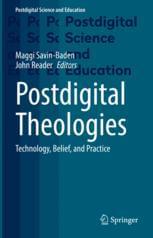Space-time isn’t an actual object or event, it’s a conceptual framework for understanding reality.




Agrivoltaics describes a process for the simultaneous use of agricultural land for food production and PV power generation. The technology enables the efficient dual use of agricultural land: photovoltaics on open spaces can be substantially expanded without significantly using up valuable resources of fertile arable land. Targeted light management optimizes the yields from PV and photosynthesis. In addition, value creation in the region and rural development are promoted, as agrivoltaic projects are ideally suited to be supported in a decentralized by farmers, municipalities and small and medium-sized enterprises. This results in new, economically viable farming options for agriculture.
We are working on the implementation and further development of agrivoltaics in industrial and research projects.
Opportunities in Agrivoltaics.
Agrivoltaics offers great opportunities for agriculture and climate protection. In their foreword, the two Federal Ministers Anja Karliczek and Julia Klöckner support the promising concept of combining agricultural production and renewable electricity generation on the same land.
The guideline provides information on the possibilities and advantages of agrivoltaics, offers an overview of its potential and the current state of technology, and presents practical advice for agriculture businesses, municipalities and companies.
Aside from more efficient land use, agrivoltaics can help reduce water consumption in agriculture, generate stable additional sources of income for farms, and make many farms more resilient against harvest losses. The early involvement of local citizens is a key criterion for success in the concrete implementation of agrivoltaics. https://www.ise.fraunhofer.de/en/publications/studies/agrivo…ition.html



“The unique aspect of our BioCog test is that unlike other digital tests, it has been evaluated in a primary care population, i.e. patients seeking treatment at a health centre because they are experiencing cognitive problems, such as memory problems. Combining the results of the digital test and the blood test increases the accuracy of diagnosing Alzheimer’s disease. The purpose of the test is to make things easier for primary care doctors,” says one of the authors.
The digital test is done by the patient individually on a tablet computer. The test measures:
Alzheimer’s disease is the most common cause of dementia. As new disease-modifying treatments for Alzheimer’s disease are now becoming available, both early and accurate diagnosis in a resource-efficient assessment process are becoming increasingly important, as not everyone responds to the new drugs. Seeking medical care for cognitive impairment is not necessarily the result of Alzheimer’s disease – it can for example be caused by depression, fatigue or other dementias.
“Primary care does not have the resources, time or specialist knowledge to investigate possible Alzheimer’s disease in the same way as specialised memory clinics. And this is where a digital cognitive test can make the biggest difference,” says the senior author.
Unlike pen-and-paper tests, which are generally used to assess cognitive impairment, digital tests provide a more detailed picture. More aspects and new variables that could not previously be measured as easily are included.

Bridge recombinases were discovered from parasitic mobile genetic elements that hijack bacterial genomes for their own survival. Presented last year in the journal Nature, the same team found these elements encode both a new class of structured guide RNA, which they named a “bridge RNA”, and a recombinase enzyme that rearranges DNA. The researchers repurposed this natural system by reprogramming the bridge RNA to target new DNA sequences, creating the foundation for a new type of precise gene editing tool they called bridge recombinases.
Starting with 72 different natural bridge recombinase systems isolated from bacteria, the team found that about 25% showed some activity in human cells, but most were barely detectable. Only one system, called ISCro4, showed enough measurable activity to enable further optimization. They then systematically improved both the protein and its RNA guide components, testing thousands of variations until they achieved 20% efficiency for DNA insertions and 82% specificity for hitting intended targets in the human genome.
While CRISPR uses a single guide RNA to target one DNA location, bridge RNAs are unique because they can simultaneously recognize two different DNA targets through distinct binding loops. This dual recognition enables the system to perform coordinated rearrangements such as bringing together distant chromosomal regions to excise genetic material or flipping existing sequences in reverse orientation. The system acts as molecular scaffolding that holds two DNA sites together while the recombinase enzyme performs the rearrangement reaction.
As a proof-of-concept, the researchers created artificial DNA constructs containing the same toxic repeat sequences that cause progressive neuromuscular decline in Friedreich’s ataxia patients. While healthy individuals carry fewer than 10 sequential copies of a three-letter DNA sequence, people with the disorder can harbor up to 1,700 copies, which interferes with normal gene function. The engineered ISCro4 successfully removed these repeats from the artificial constructs, in some cases eliminating over 80% of the expanded sequences.
The team also demonstrated that bridge recombinases could replicate existing therapeutic approaches by successfully removing the BCL11A enhancer, the same target disrupted in an FDA-approved sickle cell anemia treatment. And because bridge recombinases can move massive amounts of DNA, the technology could also help model the large-scale genomic rearrangements associated with cancers.
For decades, gene-editing science has been limited to making small, precise edits to human DNA, akin to correcting typos in the genetic code. The researchers are changing that paradigm with a universal gene editing system that allows for cutting and pasting of entire genomic paragraphs, rearranging whole chapters, and even restructuring entire passages of the genomic manuscript.

In this chapter I engage with both the question of whether Creation includes postdigital life and the implications of this potential inclusion for witnessing God’s activity in a transhuman world. To address this twofold inquiry, I investigate whether the Catholic Church can turn out to be, contrary to a received view, a doctrinal ally of transhumanism. To that effect, I dissect various seemingly disparate themes in the transhumanist literature, showing that they can attain coherent articulation once the movement’s theological undercurrent is identified. Subsequently, I show that there is a substantial overlap between this transhumanist theological underpinning and the contemporary epistemology of the Church. This theoretical bridge is possible in virtue of later philosophical developments in Catholic doctrine that are rarely acknowledged.
Join us on Patreon! https://www.patreon.com/MichaelLustgartenPhDDiscount Links/Affiliates: Blood testing (where I get the majority of my labs): https://www.u…
